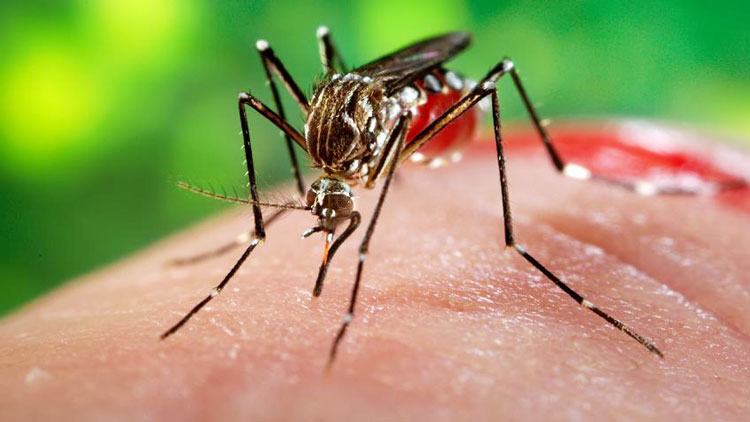

By Michelle Moskowitz
Sentinel Correspondent
Dr. James R. Sabetta, an infectious disease specialist at Greenwich Hospital, gave an overview of the Zika virus last week, with particular attention to its implications for pregnant women or women who are trying to become pregnant.
The Zika virus was first discovered in 1947 in the Zika Forest of Uganda. The virus is related to the dengue, yellow fever, Japanese encephalitis, and West Nile viruses.
In 1952, the first human cases of Zika were detected in Uganda and Tanzania, and in more recent years we have seen outbreaks in Africa, North, Central and South America and the Pacific Islands.
Zika is now present in the U.S. and its territories.
Mosquito-borne Zika virus transmission has been reported in Wynwood and the Miami Beach areas of Miami, Fla. The U.S. has also experienced increases in areas such as California, Texas, New Jersey, New York, and Philadelphia. Maps of affected areas in the U.S. and the world are available at cdc.gov/maps.
Zika is primarily transmitted through a mosquito bite of an infected Aedes species mosquito, but also can be passed on through sex with a person who has Zika, from a pregnant woman to her fetus during pregnancy or around the time of birth, and through blood transfusion.
Symptoms of the Zika virus include fever, rash, muscle aches, joint pain, conjunctivitis (red eyes) and vomiting.
Seventy-five to 80 percent of infected patients show no symptoms, and the ones who do show them will only experience mild symptoms, which can last anywhere from two to seven days.
There is no medicine to treat Zika and no vaccine is available.
Dr. Sabetta stressed during his lecture that women who are pregnant or are trying to become pregnant are at the most serious risk and “should avoid all travel to Zika-affected areas at this time.”
The CDC states that if a woman gets infected with Zika, she should wait at least eight weeks from her first symptom before trying to become pregnant; men to wait at least six months after symptoms begin.
If one doen’t have Zika symptoms but has traveled to affected areas, the CDC advises, wait eight weeks for both men and women.
The Zika virus is known to cause serious birth defects in pregnant women, primarily microcephaly (causing a small head and brain) and other severe fetal brain defects.
Other defects affecting the eyes, ears and growth development have been detected among fetuses and infants infected with the Zika virus before birth.
Dr. Sabetta also discussed evidence of a link between Zika and Guillain-Barre Syndrome (GBS) in adults, which occurs when a person’s immune system damages the nerve cells, causing muscle weakness and potentially, paralysis.
Symptoms of GBS can last up to a few months, but most people make a full recovery.
A number of countries that have experienced Zika outbreaks have seen an increase in cases of GBS, but the CDC is continuing to investigate this link.
The CDC lists the following ways to prevent exposure to Zika:
• Use insect repellents that are registered by the Environmental Protection Agency (such as Off!, Skin So Soft Bug Guard Plus); visit cdc.gov for the full list. (Please note that repellents should not to be used on babies younger than two months old.)
• Wear long-sleeved shirts and long pants.
• Use screens on windows and doors.
• Cover cribs, strollers, and baby carriers with mosquito netting.
• Prevent sexual transmission by using condoms or abstaining from sex.
Dr. Sabetta fielded a number of questions from the audience which consisted of physicians as well as concerned residents. Most of the questions were specific to that of Zika’s effect on pregnancy.
“The greatest risk appears to be in the first trimester of pregnancy, but can cause complications at any stage, some that may be latent and we don’t even know about just yet,” added Sabetta.
A blood or urine test can confirm a diagnosis, together with a recent travel history and list of experienced symptoms.
On the upside, once a person has been infected with Zika, they are most likely protected from future infections of the virus.
This is good news for parents who are concerned about their children developing Zika, which typically does not cause harm for those who are not pregnant or seeking to become pregnant.
Check the cdc.gov for up-to-date information on the Zika virus and travel related information.



